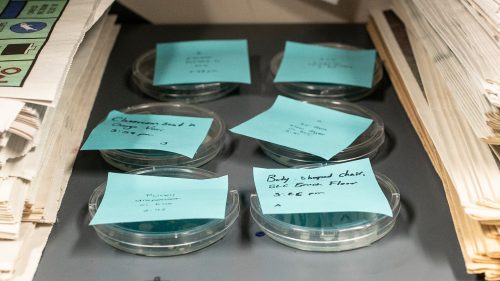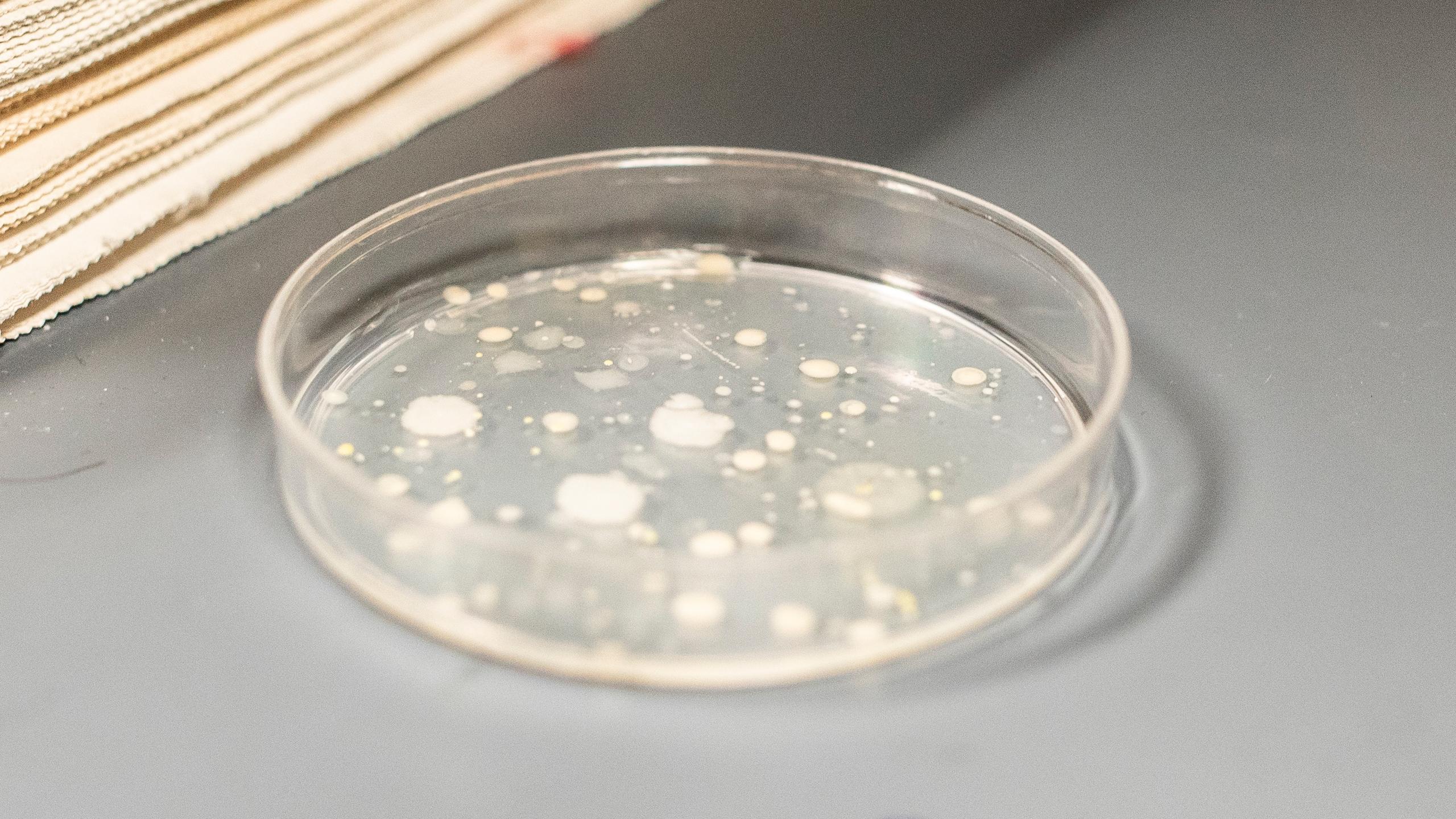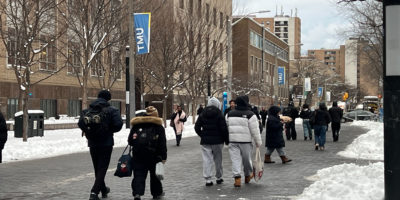By Raneem Alozzi
Ryerson is gross. Every time I heat up food in the microwave the flavour is different, and we’re running out of library study space because desks are occupied by ambiguous funk.
To test the cleanliness and bacterial growth rate on some of our campus surfaces, The Eyeopener’s news team bought a children’s Agar kit from Amazon. Armed with our instinctive curiosity as journalists, we set out to swab test 10 public and frequently used surfaces on campus.
We swabbed elevator buttons, the inside of a hand dryer as well as the air it blew out and a student-loved body-shaped chair—on the beach floor—all in the Student Learning Centre (SLC). We also tested the buttons and handles on an elliptical in the Ryerson Athletic Centre, a microwave in the Podium Building, a classroom seat in the engineering building, an antibacterial Purell dispenser in Kerr Hall South, a library keyboard and, finally, our well-worn Eyeopener couch.
The locations where the Petri dishes developed the most colonies were the SLC chair and the air inside the hand dryer. There were several growths in the elliptical and classroom dishes as well.
“You have less autonomy over your health”
While the Petri dishes look super gross to the untrained eye, Joseph McPhee, a microbiology expert at Ryerson, said seeing bacteria might indicate a problem but it does not constitute one without further investigation.
McPhee, who has been working in the field for 20 years, said he suspects many of the bacteria growths are staph bacteria; which is very commonly found on the skin. “They’re bacteria that can cause serious infections but they’re also bacteria that are really common.”
“There are bacteria literally everywhere so you don’t always know that what you’re seeing is a problem,” said McPhee. However, he said that if surfaces were cleaned on a more regular basis, the Petri dishes would have fewer colonies.
Ryerson administration said classrooms, labs, computer rooms, offices, lunch rooms, corridors and washrooms are swept, mopped and cleaned nightly during the week.
But furniture in classrooms, labs and computer rooms are spot-cleaned nightly and damp-wipe cleaned once a week when they are accessible.
Cafeteria tables are cleaned by food services throughout the day with a spray on sanitizer.
With cuts to post-secondary universities looming ahead, Ryerson will be reducing funding for different campus services—and cleanliness and sanitation could be cut.

Two years ago, faculty members protested an attempt at reducing the work done by janitorial staff in offices, a decision that would have limited the number of times custodial staff cleaned garbage bins.
After the provincial government announced a 10 per cent cut to tuition fees, the administration said that some courses might be cancelled and fees for international students may go up.
“I think the administration is acting in good faith but when you’re told to cut, you have to make tough choices,” said McPhee.
Ryerson’s administration said they have no plans to make changes to custodial services at this time.
For most healthy people, bacterial growths are less of a problem, said McPhee. But in a university setting, we don’t often know who has lower immune levels.
“With infections, everything is context-dependent,” he said. But Jessica Mudry, an assistant professor and health policy expert in the Faculty of Community Services, said university policies do not take into consideration that health is not a binary.
Change to the system would need to be systemic because policies in place do not take into account that someone may not be health-presenting, she said.
“When you’re told to cut, you have to make tough choices”
“If someone shows up to school even if they have [a] virus but they really want to write the exam and not have to retake it in August and then other people fall ill, it’s not really the fault of the students,” said Mudry. “It’s systematic because the school made it really hard to retake an exam,” she said.
McPhee said he thinks there should be legislation in any public setting surrounding minimal levels of cleanliness.
But on campuses “you’re relying heavily on everybody else to keep the space healthy,” said Mudry. “You have less autonomy over your health.”
With files from Sherina Harris












Leave a Reply